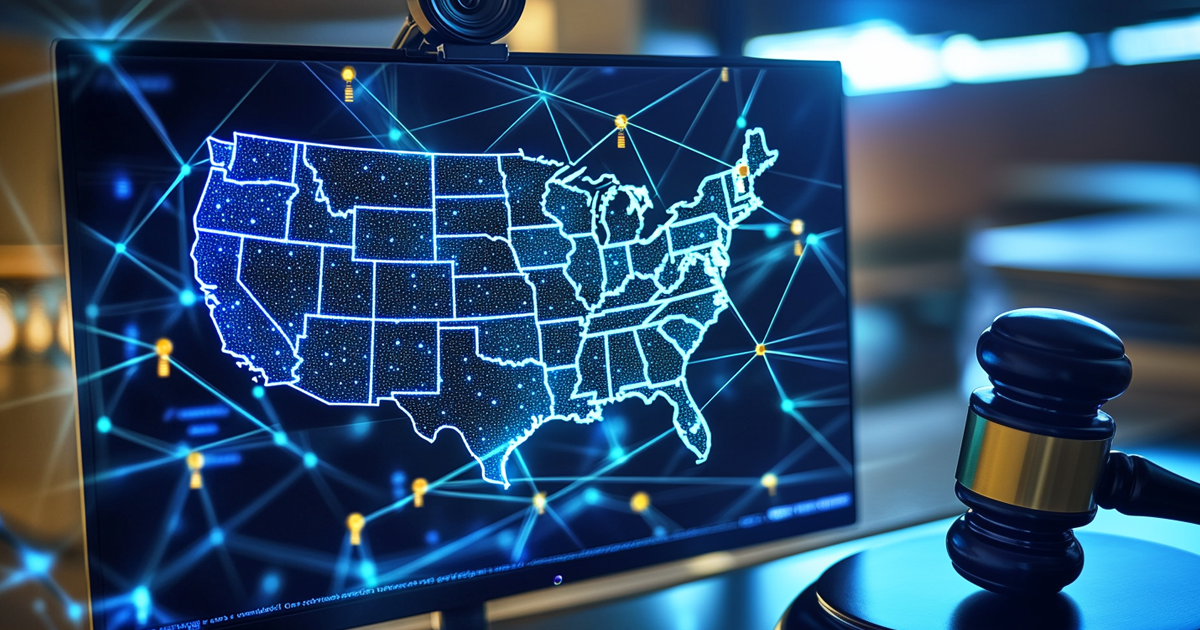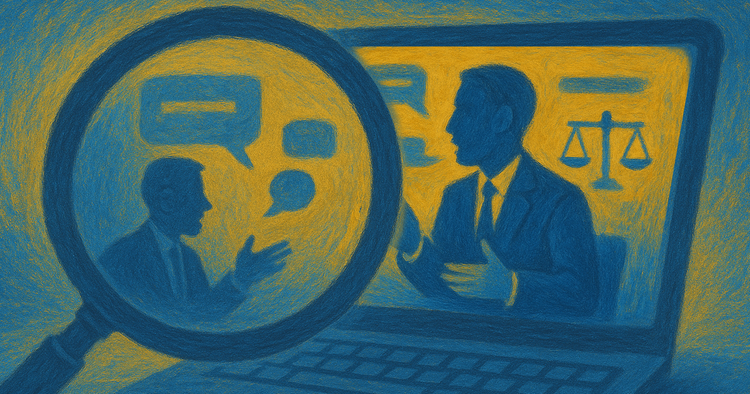Top 10 Remote Deposition-Friendly States

Remote depositions have become more than a convenience—they’re now an integral part of modern legal practice. However, navigating the maze of state regulations can feel like arguing a case without a brief. Each jurisdiction has its own set of rules, and mastering where technology and compliance intersect is crucial for successful remote proceedings.
This guide spotlights the ten most technology-forward states where legal professionals can confidently conduct remote depositions. Whether expanding your practice’s reach or streamlining operations, understanding these key jurisdictions will help you leverage remote tools effectively while maintaining compliance.
What Makes a State Prevail-Friendly?
Remote deposition-friendly states distinguish themselves through three key elements: clarity, technology acceptance, and flexibility. States that lead the pack offer well-defined rules that eliminate guesswork, embrace modern deposition platforms, and allow participants to connect from various locations—both within and across state lines. This progressive approach lets legal teams focus on strategy rather than navigating complex compliance requirements, ultimately creating a more efficient and accessible deposition process.
Spotlight on Remote Deposition-Friendly States
Some states stand out for their progressive approach to remote depositions, making it easier for legal professionals to embrace legal tech tools like Prevail. These jurisdictions combine clear regulations, technological openness, and practical flexibility to create an environment where remote proceedings thrive. Let’s take a closer look at 10 leaders in this space.
California has been at the forefront of remote deposition adoption. Rule 3.1010 explicitly permits depositions via videoconference, offering legal professionals the freedom to conduct proceedings without the need for physical presence. Oaths can be administered remotely, ensuring compliance while maintaining efficiency.
Florida embraces communication technology for remote depositions, providing legal professionals with much-needed flexibility. The state permits remote swearing of witnesses, streamlining the process for participants in different locations. While certified court reporters are required in certain situations, the rules accommodate their remote participation.
Illinois has embraced remote depositions under Supreme Court Rule 206(h), offering legal professionals a streamlined and adaptable process. The rule allows oaths to be administered remotely, provided all parties agree, ensuring flexibility without sacrificing procedural integrity. This collaborative approach simplifies logistics, making it easier to coordinate multi-party proceedings.
Louisiana offers a straightforward framework for remote depositions, emphasizing clarity and accessibility. The state permits participation via remote electronic means, provided all parties agree beforehand. Licensing and procedural guidelines for court reporters ensure the integrity of the process, making it easier to maintain compliance. These rules balance flexibility and structure, allowing legal professionals to adapt without compromising the reliability of the proceedings.
Massachusetts has embraced flexibility in its remote deposition rules, making it easier for legal professionals to adapt to more current practices. The state allows remote depositions with clear guidelines that simplify court reporter participation. Certified officers can administer oaths remotely, ensuring compliance without unnecessary travel or scheduling challenges.
New York has set a high standard for remote depositions by requiring videoconferencing technology. This mandate ensures a smooth and professional experience for all parties involved. The rules also allow for flexible options when it comes to recording and transcription, accommodating both traditional and modern methods. Notably, a certified court reporter must oversee the proceedings, maintaining the integrity and reliability that legal professionals rely on.
Texas maintains an accommodating approach to remote depositions, allowing them by telephone or other remote electronic means with reasonable prior written notice. Texas rules specify that remote depositions are considered to have been taken in the district and place where the witness is located. A certified officer must administer the oath, but the rules provide flexibility in recording methods—parties can use stenographic or non-stenographic means (like video recording). When opting for non-stenographic recording, parties must serve notice at least five days before the deposition, specifying the recording method to be used.
Utah has embraced the practicality of remote depositions, allowing proceedings to be conducted electronically under Rule 30 of the Utah Rules of Civil Procedure. The state provides flexibility in choosing technology platforms, making it easier for legal teams to coordinate and adapt. With straightforward rules, Utah offers a seamless framework for depositions in the digital age.
Virginia’s rules make it remarkably easy to conduct depositions remotely. The state explicitly permits depositions via telephone, video conferencing, or teleconferencing, providing various options to suit different needs. This practical approach simplifies remote proceedings without sacrificing reliability.
Washington has made remote depositions the default, removing the need for court approval in most cases. Recent rule revisions have streamlined the process, ensuring legal professionals can easily schedule and conduct remote proceedings. This presumption of remote accessibility simplifies logistics, allowing participants to focus on the substance of the deposition rather than its setup. The state’s forward-thinking approach reflects a commitment to efficiency and accessibility.
Best Practices for Leveraging Prevail in Remote-Friendly States
Successful remote depositions blend thorough preparation with the right tools. While Prevail’s platform optimizes virtual depositions, attention to detail is crucial. Start by verifying your jurisdiction’s specific requirements—each state has unique rules that must be followed. Prevail simplifies compliance across all aspects, from court reporter coordination to exhibit management.
Clear communication and technology readiness are essential—at a minimum, schedule brief tech checks to ensure all participants can connect and navigate the platform effectively. Prevail’s intuitive interface, secure transcription processes, and robust authentication features protect your proceedings while keeping them compliant with state and federal regulations. As remote deposition rules evolve, Prevail’s tools adapt to help you stay current and confident in your virtual proceedings.
Conduct Remote Depositions Confidently
The landscape of remote depositions continues to advance, offering legal professionals unprecedented opportunities to conduct efficient, secure proceedings across jurisdictions. The ten states highlighted in this guide demonstrate how clear regulations and technological acceptance can enhance the deposition process. By understanding these jurisdictions’ requirements and leveraging platforms like Prevail, legal teams can focus on what matters most—building strong cases and serving their clients well.
Success in remote depositions comes from combining jurisdictional knowledge with the right tools and preparation. As more states embrace remote proceedings, staying informed about evolving requirements and best practices is increasingly valuable. With proper planning and reliable technology, legal professionals can confidently navigate remote depositions in any of these forward-thinking jurisdictions.




